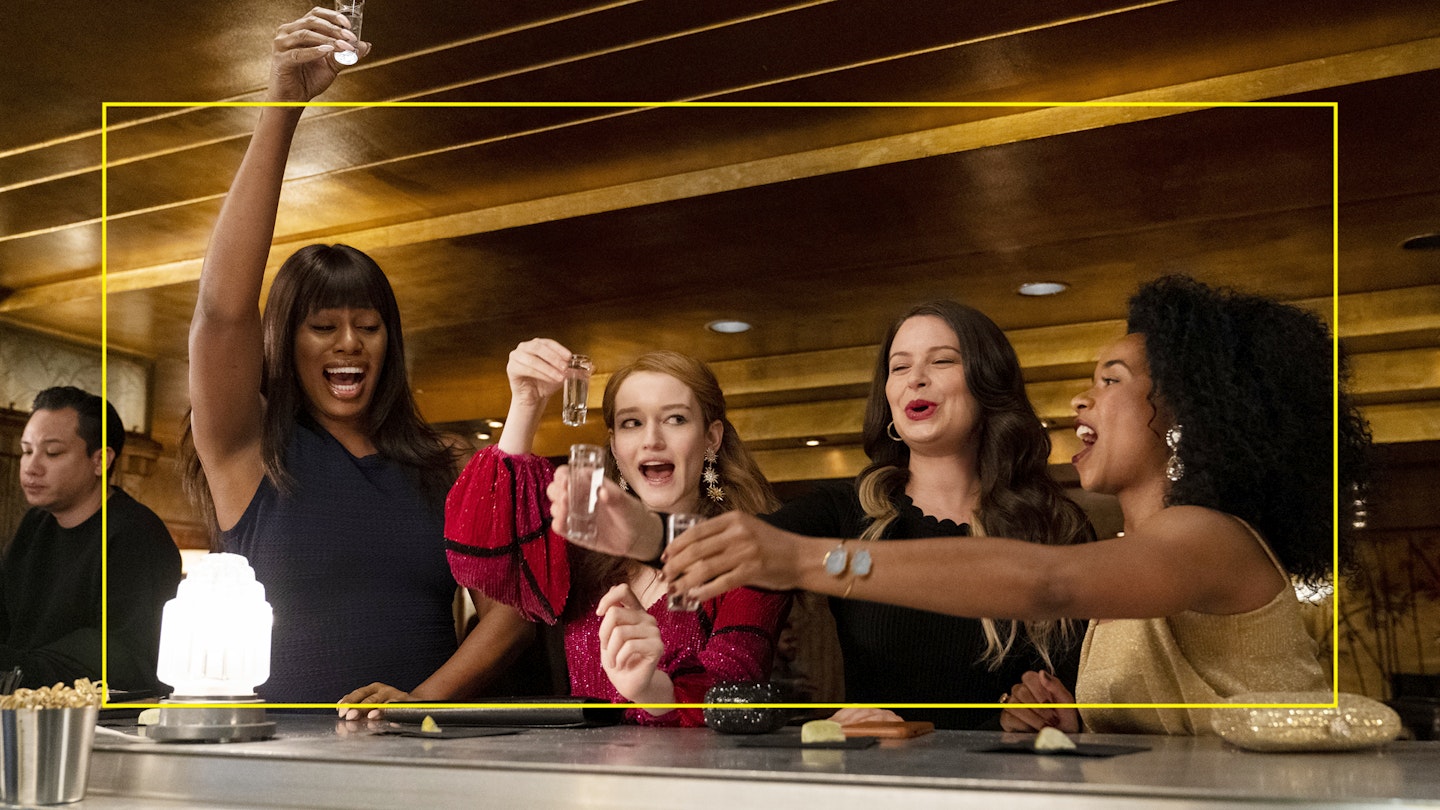The first sign my friends and I came from different backgrounds? When I heard mention of a ‘breakfast room’. I mean, a room just for eating breakfast? I ate cereal pretty much anywhere except the bathroom. I quickly learned to hide my differences and have played catch-up ever since.
Financial disparity between pals isn’t always a big deal, but if everyone’s deep-throating hedonism on Insta, with money no object, it’s easy to feel you’re letting the side down if you can’t join in. The conversation around money is so messed up that, when you’re the poorer friend, it’s always on you to level up. George Clooney once gave his oldest pre-fame friends a million dollars each, and who would say no, but he was basically throwing money at a them-shaped problem, leaving a slightly odd taste – and it wasn’t caviar.
I grew up on a perfectly nice council estate in Bradford, Yorkshire, raised by my mum, who worked hard so I looked no different from the kids from big houses. But when I moved down south for university – first in the family to go, one extra pressure for the stack – I met actual rich people for the first time. In hindsight, they were probably ‘just’ middle class, but to me they were Kardashians. So light and free, talking of idyllic childhoods, swimming pools, barbecues, ski-trips, guest rooms, overstocked fridges and ‘just help yourself’. I was in a science-fiction movie.
So, long before Anna Delvey was handing out PayPal details to the Illuminati’s lower echelons, I was giving an Oscar-worthy performance of someone who’d known the joy of a breakfast room, even switching to an indistinguishable accent overnight so I could be from anywhere – it felt better than nowhere. I faked it to make it, hiding money worries and spiralling overdrafts, blowing a large chunk of student loan on expensive threads and haircuts.
This sounds dim of me, but swanning around in pricey coats, bouncing cheques for drinks, and lunching out every day gave me a priceless sense of belonging. Fitting in doesn’t mean being flash, but showing you’re comfortable with spending; that it’s normal to you. No kvetching over a split bar tab, no saving clothes for ‘best’ or buying only dark colours that won’t show dirt.
Rich people wear a lot of white, have you noticed? Why worry about stains when you have access to dry-cleaning services rather than the last knackered machine in the laundrette? I didn’t dare buy a pale T-shirt until I was 22 and, while wearing it, refused to eat anything that wasn’t clear – which limited me to 7Up and consommé.
What you notice about friends with money is how they have the luxury of being careless with everyday possessions, because they can always buy more. For proper rich friends – ones whose parents drive Land Rovers stuffed with moulting labradors and drink wine at 11am yet somehow aren’t perceived as alcoholics – precious heirlooms are long-dead great-grandma’s ancient cutlery or artefacts plundered from African villages by colonising ancestors. For people like me, there is sentimental value in newness: high-end trainers, or the latest gadgetry, the joy of owning something box-fresh, pristine. Buying secondhand is charming to those who could probably afford to shop elsewhere anyway, thriftiness very much a middle-class eccentricity.
For a long time, I hid parts of myself away for the chance to breathe that holy air – poorer pals don’t want to spoil things by reminding everyone they have no money and, often, richer friends can’t comprehend it anyway. Tell any rich person you grew up without money and they’ll inevitably try to eclipse you with a trauma of their own – they say money’s no guarantee of happiness, but it’s one less thing to worry about. Anyone helping out less affluent mates might feel they can’t win anyway: the broke pal ends up either embarrassed or gets accustomed, quietly sliding the bill over. (The right approach is about striking a balance, accepting that, often in friendship, our golden eras don’t always overlap. Years after I left university, one of my closest friends got an amazing, jet-setting job. She was generous and saved my ass many times, but never patronised me; she always appreciated when I could pay my own way, but if I couldn’t, why worry?)
This isn’t a strike-it-rich story: as an author, I’m self-employed, so my finances are what I would diplomatically call erratic, but gradually, I realised coming from modest means wasn’t anything to be ashamed of; plenty of people had less than me and still held their heads high. If I couldn’t afford to join that weekend away, or a lavish meal, I was open about it. Maybe it’s about getting older, or caring less about impressing people, but connections with true friends became deeper once I let them see who I really was.
So my advice on fixing the friendship cash gap (in the dying throes of capitalism and while the cost of living is set to soar further)? It’s not easy. Moderate big blow-outs. Split the bill, or pay a little over. If you’re the broke friend, treat old moneybags occasionally if you’re flush; spending money on others is a pleasure too often denied. Richer pals, you may not understand why your mate can’t ‘just get a better job’ or whatever, but if you want the high life, don’t make your bestie fake their way through it. Meet them halfway – they’ll appreciate the chance to be themselves and be accepted by you, whatever their bank balance. Feeling generous? Let them know true luxury – buy them a crisp white tee and say the first dry-clean is on you.
